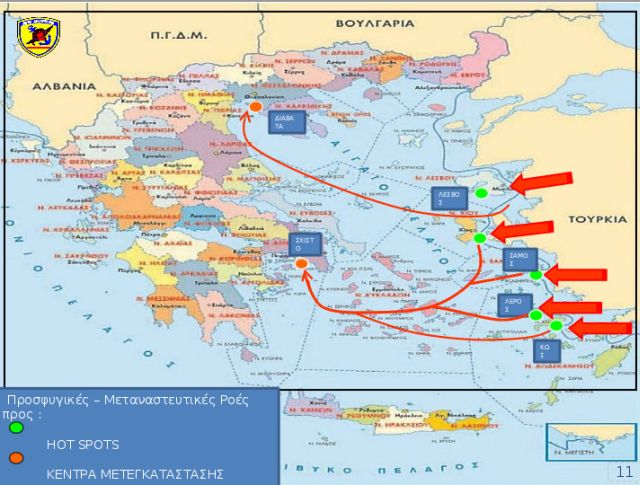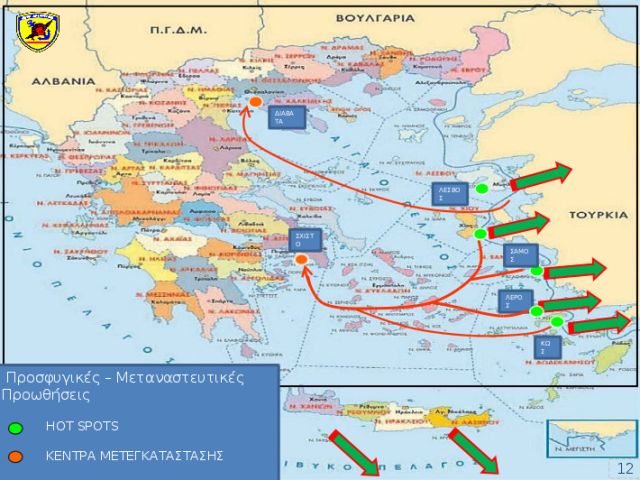The Greek Prime Minister Alexis Tsipras and European Council President Donald Tusk
A clear signal of support for Greece in connection with the refugee crisis was sent by European Council President Donald Tusk, who stressed that expelling the country from Schengen, as suggested by some partners, "is not a solution".
"Excluding Greece from Schengen solves none of our problems", said Tusk after his meeting with the Greek Prime Minister Alexis Tsipras at Maximou residence, which took place in connection with the crucial European Union summit in Brussels on Thursday.
Donald Tusk pointed out that Greece’s possible exit from the area of free movement "does not end Europe’s attraction of refugees", nor does it end the war in Syria.
He stressed that Greece is one of the countries that have suffered the most from the crisis that is "challenging the endurance" of the whole of Europe, pointing out that neither Greece nor the old continent have caused the refugee crisis. The President of the European Council did not fail to note the nomination of the residents of the Aegean islands for the Nobel Peace Prize.
"What we need to do is to protect our external borders, but in a way that requires more efforts, both on the part of Greece and the partners in Europe", said Tusk.
At the end of his statement, the President of the European Council sent a positive signal regarding the assessment of creditors, stressing that Europe recognizes the Greek efforts and that he is optimistic about the progress of negotiations.
For his part, the Greek Prime Minister reiterated Greece's position that the problem will not be solved by "less Europe", as suggested by some countries, but with "solidarity, more shared responsibility and more Europe".
Meanwhile, Minister of Defence Panos Kammenos and Deputy Minister for Migration Yiannis Mouzalas spoke about the progress on the construction of the so-called hot spots at a press conference dedicated to the relevant commitments made by Greece to the European Union.
As explained by the Ministers, four out of the five planned registration centres for refugees are ready on the islands as well as one of the two relocation centres in mainland Greece.
The registration centre on the island of Kos will be ready in five days. The already operational registration centre on the island of Samos will be completed on 23 February due to the expansion of the facility.
As stated by Yiannis Mouzalas, the relocation centre for refugees in the former military camp in Diavata will not be rebuilt and will be extended by adjusting the base at the commercial port of Thessaloniki in an appropriate way.
Two maps were presented during the press conference, showing the migration flows from Turkey, the places on the Greek islands where hot spots are being built and the relocation centres in mainland Greece.

Hot spots
- On the island of Lesbos
- On the island of Samos
- On the island of Leros
- On the island of Kos
Relocation centres
As shown on the maps, refugees from the island of Lesbos will be transported to Diavata and migrants from the other hot spots to Schisto.
